Healthy and strong teeth not only look nice, they also contribute to a proper work of our body and our overall health! However, many people are still in the illusion of a toothbrush being a super powerful tool that can cope with absolutely any issue that comes with teeth and their health.
However, even if you brush your teeth daily and you do it correctly, and even if you don’t forget to floss them regularly (which, we are sure, makes your dentist madly happy!), a professional dental cleaning is a must-have procedure for everyone.
This procedure will help you to get rid not only of dental plaque, but even of the deepest dental tartar that can’t normally be removed with the help of just a toothbrush!
Naturally, if you have never done this procedure before, you might be wondering how much time a dental cleaning of your teeth could take. And this is what we are going to find out in this article!
In addition, you will learn what to do in order to keep your recently cleaned teeth the same white and clean longer after you leave your dentist’s office.
How Long Does a Dental Cleaning Usually Take?
Let’s face the truth: nobody likes being at the dentist’s! Even if your dentist is the best specialist in the world with the gentlest hands! And even if he or she is a dental wizard who can extract a tooth so delicately that you won’t even feel it.
All of us want to spend as little time in the dentist’s office as possible even if it’s just a mere check up. Of course, if we need to undergo any procedures, we want to know exactly how much time they might take!
And this is the most frequent question that comes up when people learn they need to have their teeth professionally cleaned. Well, along with a few other questions like “Will it hurt?”, “How much will it cost?” etc.
So if you know that you also need to undergo the professional dental cleaning soon, you might be wondering how long it could take you. Well, in general, this procedure does not take much time!
Normally, dental cleaning lasts from half an hour and up to one hour. But no worries! If your teeth are healthy and strong, and if you have no problems with your gums, you should not spend more than thirty minutes in a dentist’s chair.
However, the time needed to complete the cleaning may vary, and it usually depends on several factors:
- The state of your gums
- The state and health of your teeth
- The type of cleaning
What do we mean, you may be wondering? See, let’s start with the number one point. If, let’s say, your gums are not in a perfect state, the dentist will have to be extremely careful when cleaning your teeth in order not to harm the gums!
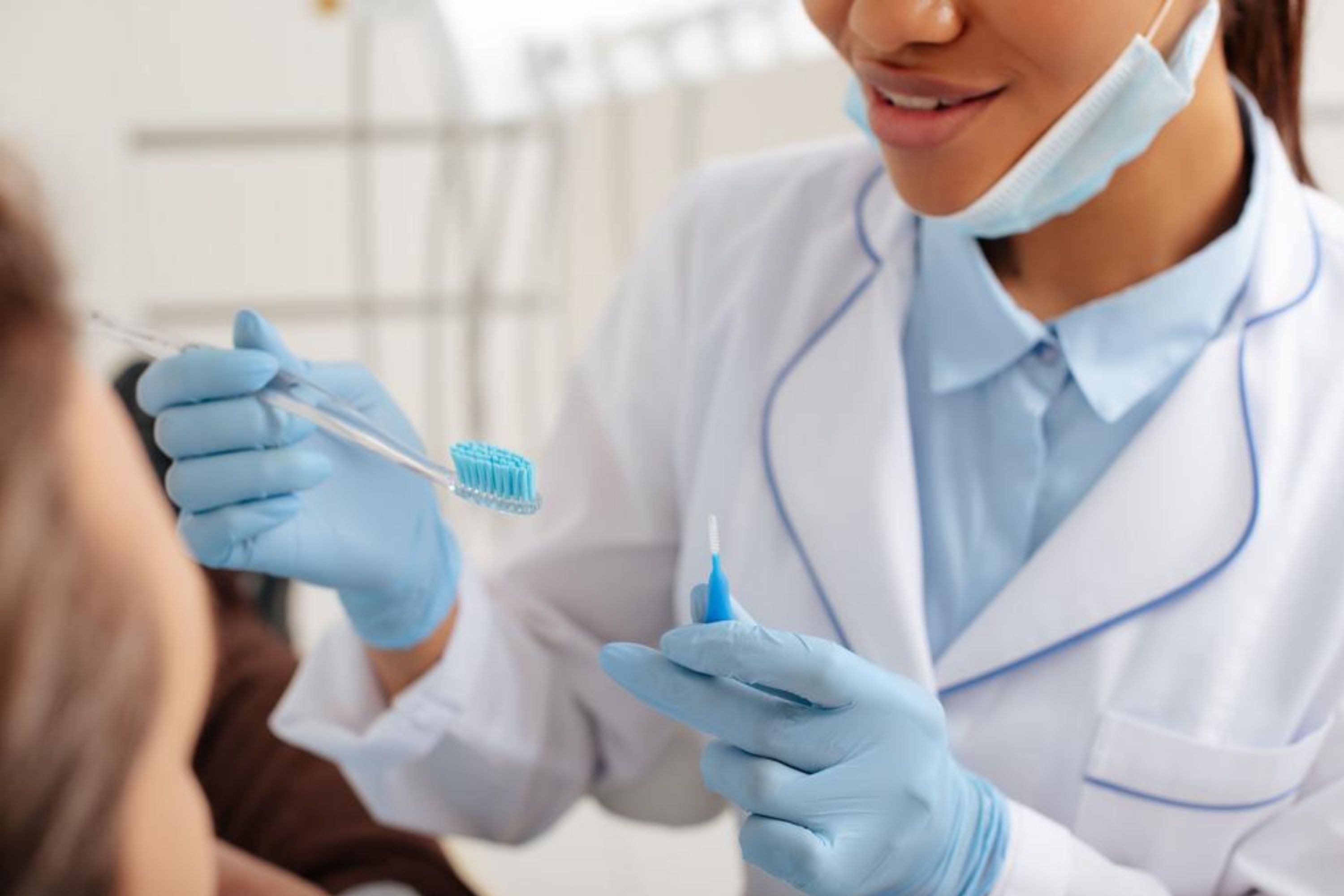
That means the procedure will be done more slowly and thus it will take some more time than usual.
Another scenario is when a patient comes to the dentist and his or her state of teeth is not quite all right.
It can be due to any reason, but in this case, your doctor will also have to be very careful while cleaning your teeth in order not to cause more damage to them.
Finally, there are situations when a patient lacks certain teeth (which is due to genetics or because those teeth have been previously removed).
In this case, and if your teeth and gums are in a good state of health, the dental cleaning will take less time simply because the doctor will have to work on fewer teeth!
And finally, there are two types of cleaning that you can be assigned to. Depending on which one exactly you need, the time needed for completing the procedure will vary from thirty minutes to one hour respectfully.
And now, to make it clearer for you, let us explain in detail what those two types of dental cleaning are, and how much time they usually take.
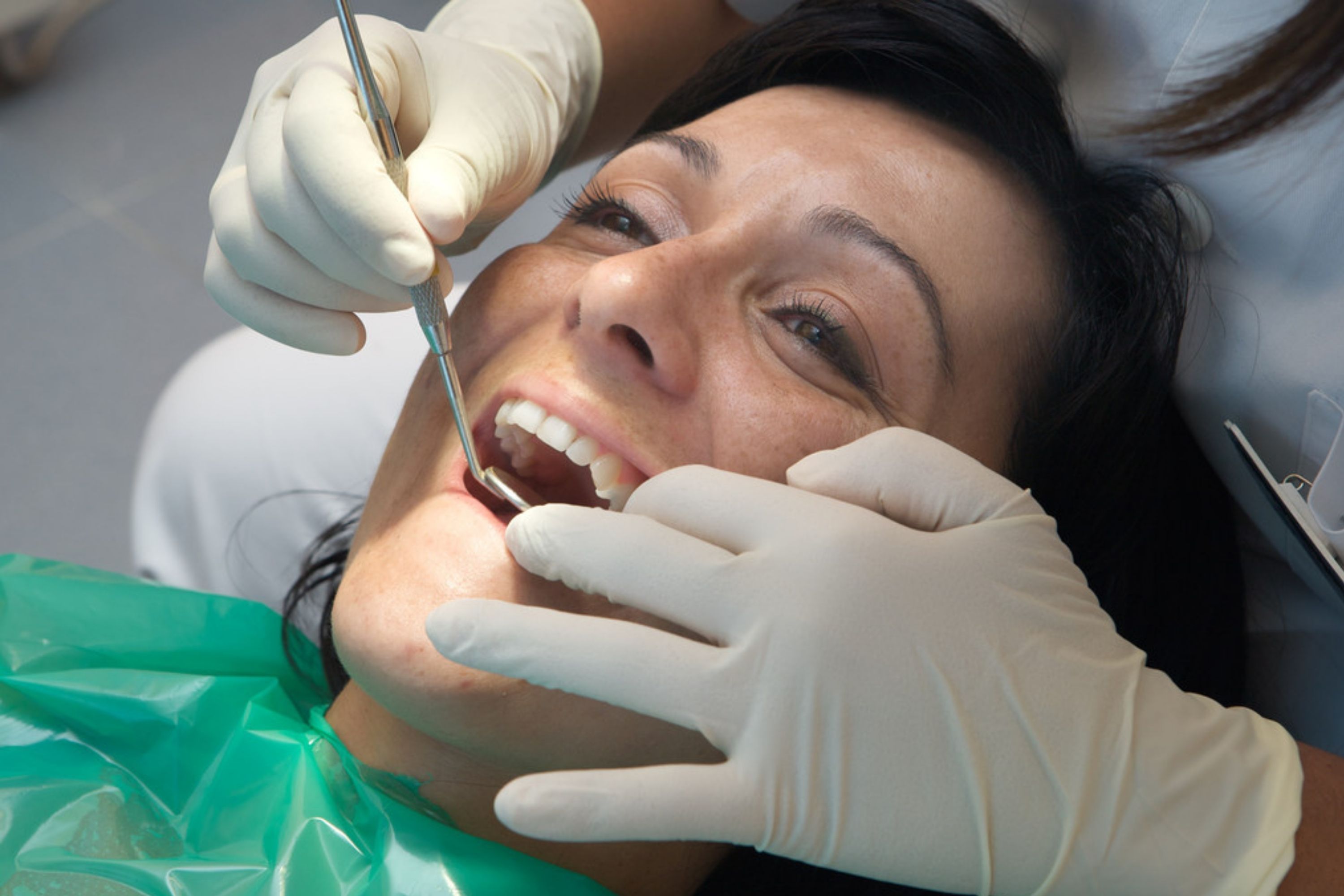
How Long Does It Take For a Preventative Dental Cleaning?
First of all, let’s figure out what this preventative cleaning is. A preventative (or a prophylaxis) dental cleaning is a type of professional dental teeth cleaning that is used when the general state of a patient’s teeth and gums is sufficient and there are no serious issues with them.
A preventative dental cleaning is made by a dental hygienist with the use of a special tool called a dental scaler.
With its help, your hygienist will remove plaque and tartar from the surface of your teeth by gently scraping them off. As an option, a pressurized water stream can also be used.
After the majority of plaque and tartar is removed, your hygienist will apply gritty toothpaste in order to brush your teeth.
Then, your whole mouth will be flossed and rinsed to remove the paste leftovers, as well as the debris that might be left after the cleaning. Finally, to finish the procedure, they will apply fluoride to the surface.
It will strengthen the enamel which is very sensitive and fragile after the cleaning. And also, fluoride will prevent plaque and tartar from accumulating.
In general, this procedure takes around half an hour if the dentist finds the state of your teeth and gums satisfactory enough for this type of cleaning.
Of course, if you lack any teeth (but the rest of them are healthy), cleaning might take even less time. But if you have any issues either with your teeth or with the gums, you will most likely be assigned to a deep dental cleaning.
Related: 7 Qualities to Look For in an Orthodontist
How Long Does a Dental Deep Cleaning Take?
A dental deep cleaning is another type of professional teeth cleaning which is usually taken when a patient has any issues with his or her teeth or gums and regular cleaning may only hurt. Also, deep cleaning is used when a patient has significant dental tartar buildup.
In general, this procedure takes around an hour, but there might be exceptions. But let’s move step by step!
In the case of any gum disease, a deep cleaning also known as scaling and root planing is usually performed. Although a scaling and root planing cleaning starts the same way as a preventative cleaning, it cleans the gum pockets and tooth root surfaces as well.
This is because excess plaque in the gum pockets causes inflammation in the gums and causes them to pull away from the teeth, or recede. In order to treat gum disease and reverse gum recession, plaque needs to be removed and the roots need to be smoothed so the gum tissue can reattach itself.
For the patients with advanced gum disease, or periodontitis, periodontal cleanings are generally recommended. Periodontal cleanings are scaling and root planing cleanings in fact, however they are usually performed more frequently.
The frequency depends on an individual’s symptoms. The goal of these cleanings is not to prevent gum disease, rather it is to prevent the disease from progressing.

Finally, there is one more type of cleaning used by dentists that we need to mention here. This one is not performed often. This type of cleaning is the most involved and it lasts the longest.
It is usually performed on people who either have never been to a dentist or are unable to practice dental hygiene on their own.
Known as a gross debridement cleaning, this cleaning is used in cases when there is a significant dental tartar buildup that cannot be removed with a dental scaler only.
Instead, in this case, a special vibrating tool is usually required in order to loosen and remove the hardened deposits.
Gross debridement cleanings are usually performed with dental anesthetics and are scheduled one quadrant at a time, requiring multiple dental visits.
Now that you are aware of the amount of time needed for cleaning your teeth professionally, you might be wondering what this procedure consists of. This is why below we have provided you with a list of the major stages that usually take place during the dental cleaning.
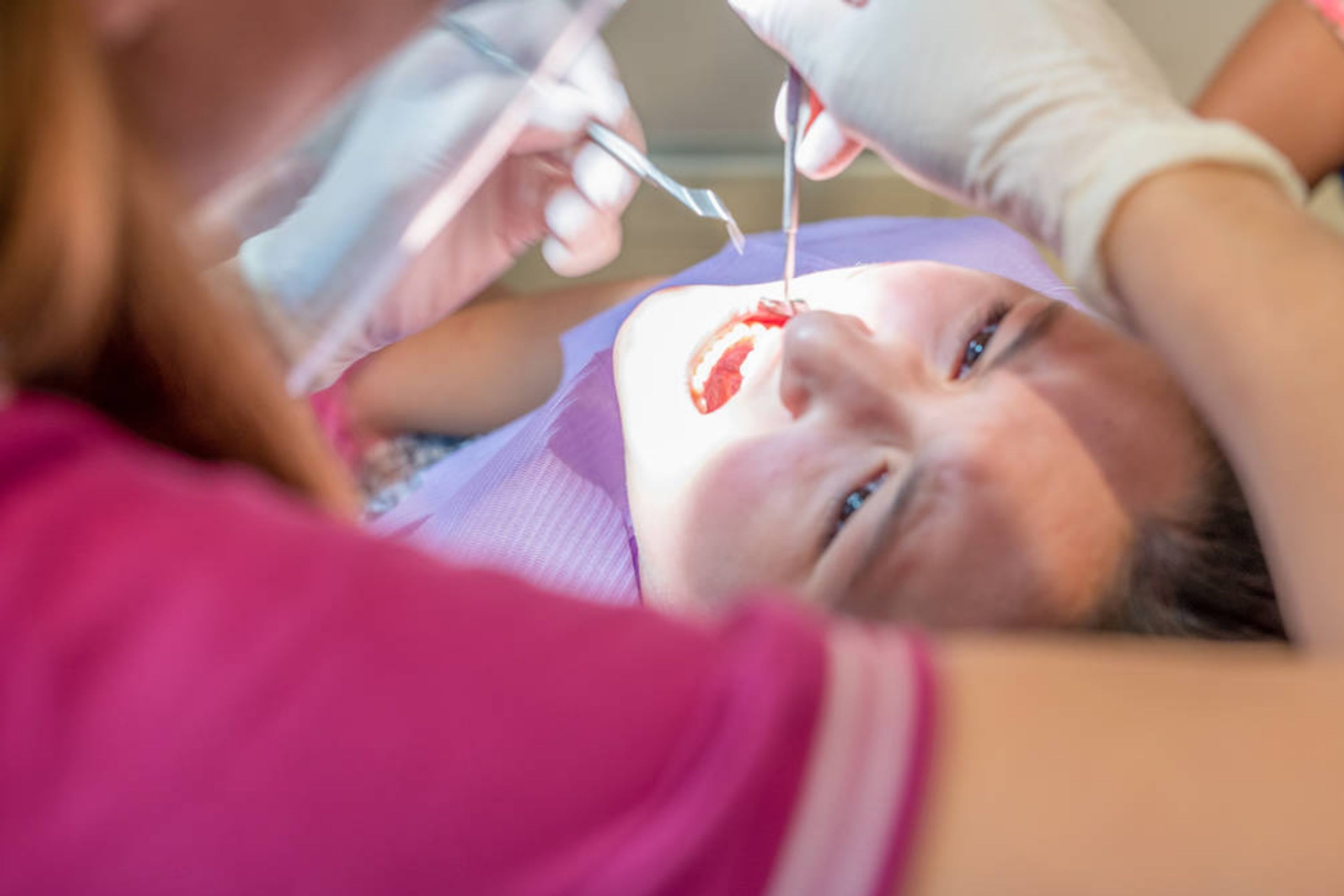
Related: 11 Proven Tips How to Get Rid Of Wrinkles On Face And Neck
The Stages Of Dental Cleaning Process
Any type of dental cleaning typically starts with a thorough examination of your mouth.
To do this, your dental hygienist uses a small mirror to check for signs of oral problems, such as inflamed gums, plaque, tartar buildup, and dark spots on teeth.
This examination helps the hygienist identify problem areas to address during the cleaning.
The hygienist will alert your dentist about any cavities, gum disease, or other serious issues. The amount of time this takes depends on the overall health of your teeth and gums. As for the cleaning procedure itself, it usually consists of the following steps:
- Scaling
- Polishing and flossing
- Fluoride application
After your teeth and gums are examined, the hygienist starts with scaling.
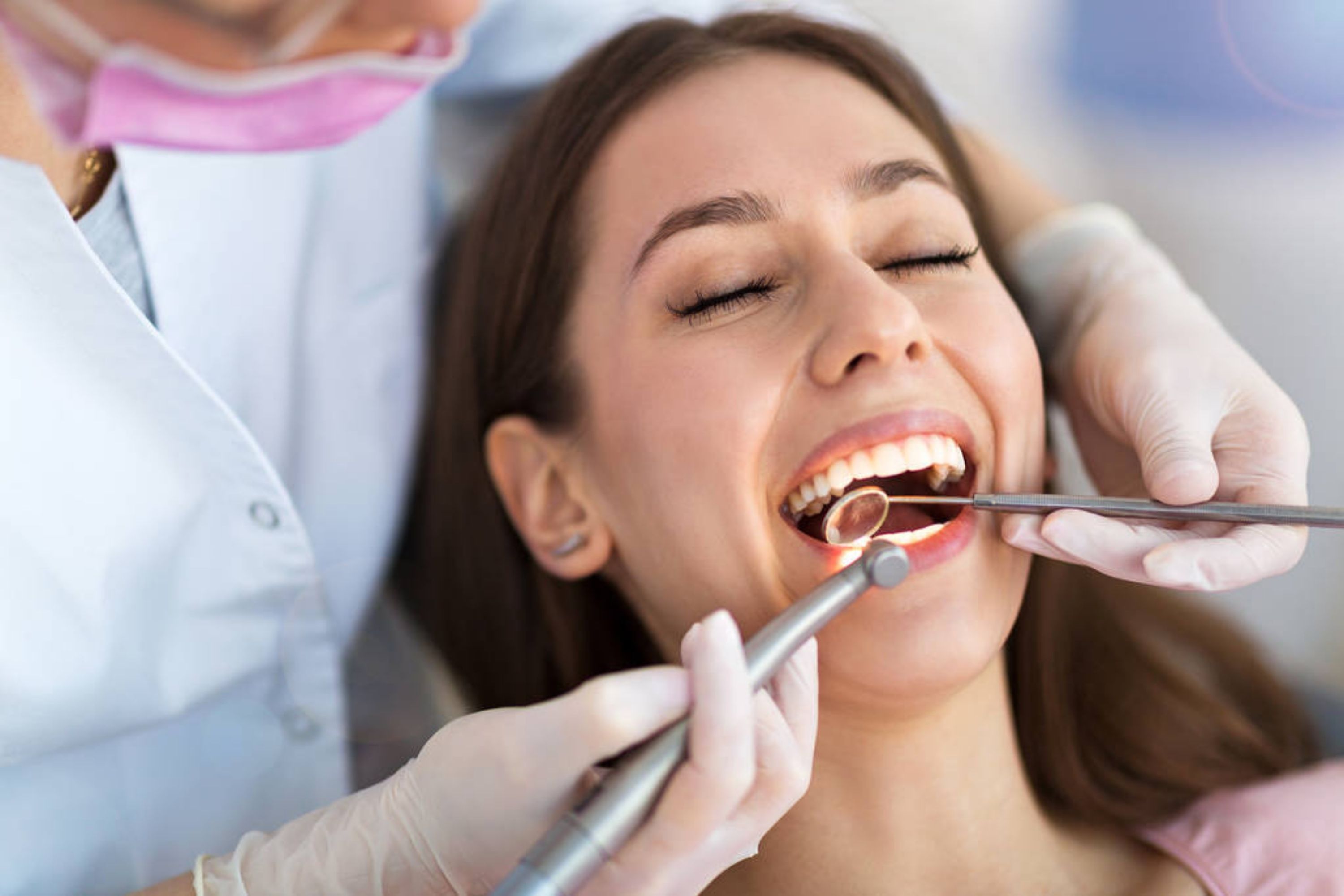
With the help of a small hook-shaped tool, he will remove plaque and tartar from the surface of your teeth, between teeth, and near the gum line.
In some cases, an ultrasonic scaler can be used that uses the power of water and vibration to remove plaque.
The length of time to perform this part of the procedure depends mostly on the amount of plaque and tartar present.
The next step is polishing and flossing. Using a handheld electric tool and gritty toothpaste, known as prophylaxis paste, your hygienist polishes your teeth. Polishing helps your teeth look their best, but it also prevents the buildup of plaque and tartar on the surface of your teeth. Your hygienist then flosses your teeth to remove any remaining plaque and paste from between your teeth.
Finally, fluoride application will finish the whole procedure.
Fluoride is a natural mineral that helps keep tooth enamel strong; while many municipalities add fluoride to the drinking water, many people benefit from fluoride treatments.
These treatments involve wearing a mouthpiece filled with a fluoride gel for about one minute, so the treatment will not add much time to your overall dental cleaning. Fluoride gels are available in a variety of pleasant flavors, so the treatment is comfortable as well.
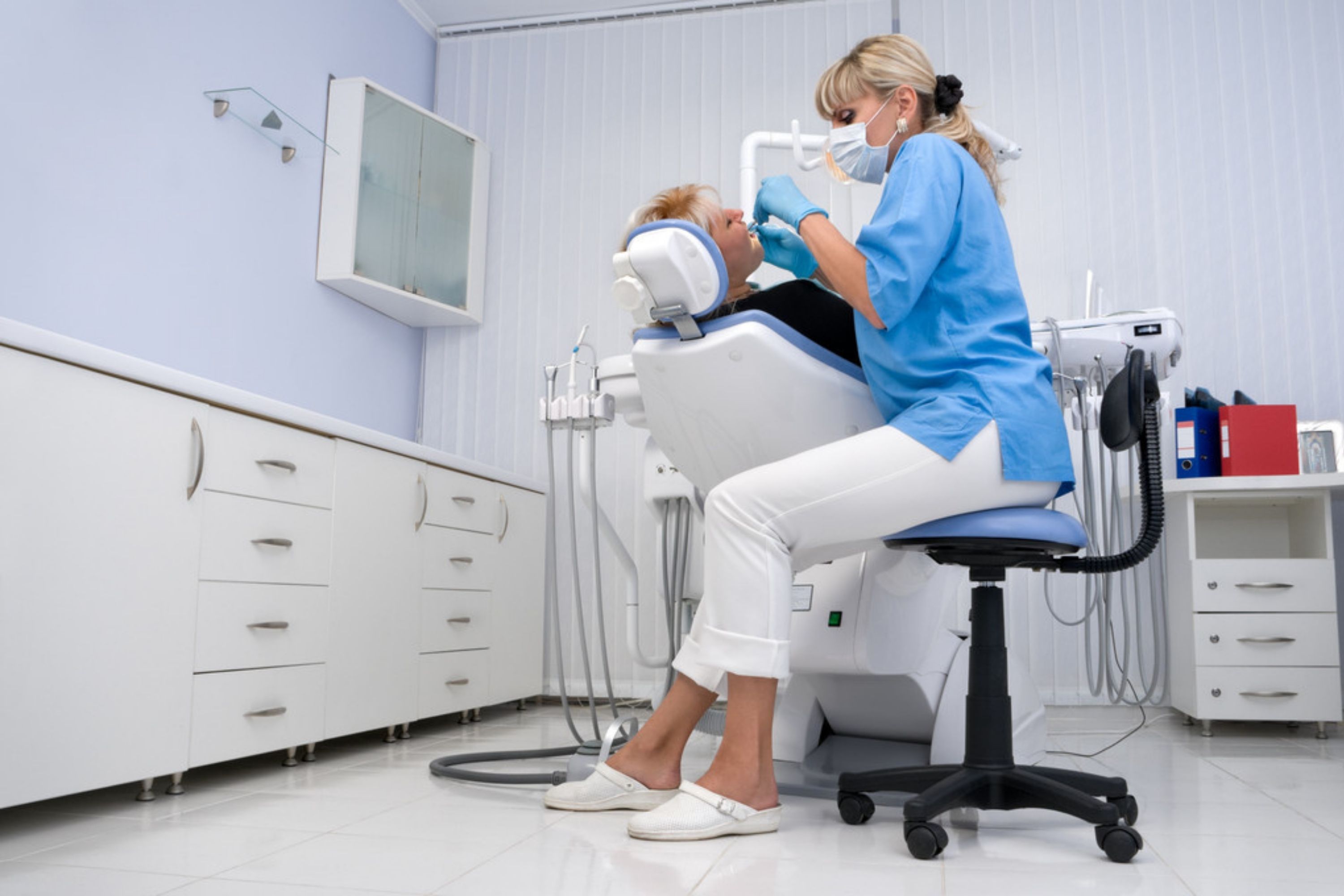
How to Take Care Of Your Teeth After the Professional Dental Cleaning?
If you have ever done professional dental cleaning of your teeth, you know how white your teeth look!
However, to keep them like that longer, you will have to follow several simple rules, otherwise, the whole work will be in vain and your teeth will develop the yellowish dental plaque pretty fast!
Since after the dental cleaning your teeth are extremely sensitive and vulnerable, you need to remember a few handy recommendations:
- Don’t drink tea, coffee, and other similar drinks for a few days after the cleaning. It will help the enamel heal faster and remain white.
- Avoid sparkling water and soda, especially the drinks that have colorants. They can also stain your freshly cleaned teeth!
- Be careful with hot and cold food and drinks! Your teeth are very sensitive now, so be gentle!
- Avoid using a harsh toothbrush for a while (your dentist will tell you for how long). It will help the enamel to heal faster and avoid being damaged.
- Avoid any hard food like nuts or even chips!
And of course, remember to brush and floss your teeth regularly. By the way, your dentist may advise you on a specific toothpaste that is best to be used after the dental cleaning!
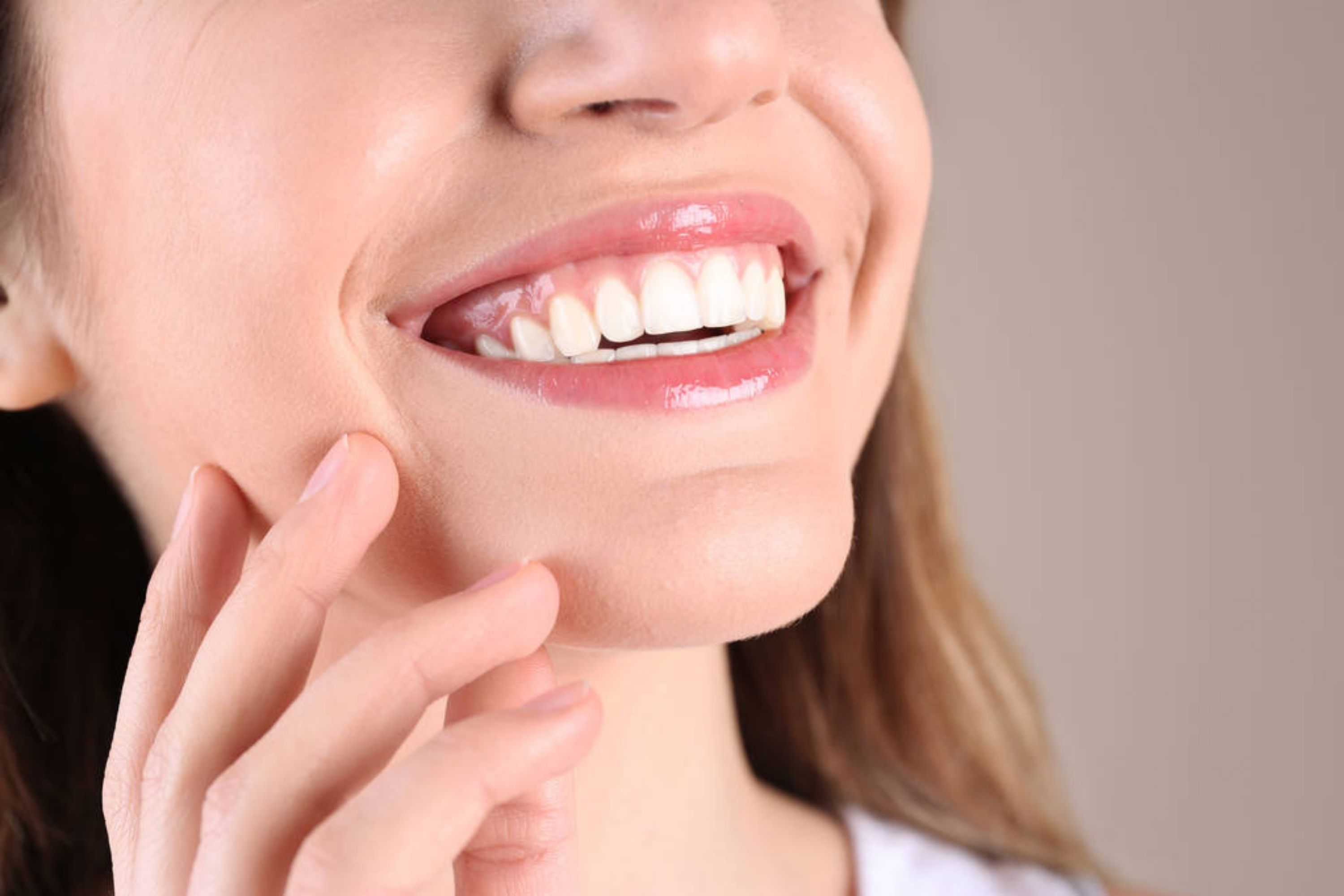
It will help the enamel and the gums to restore quicker, especially if you had to undergo a deep cleaning.
So, now you know what professional dental cleaning is, what types of it exist, and what this procedure consists of. And since you have also learned what you can do in order to keep your freshly cleaned teeth white longer, you will surely have a shining hollywood smile!
[wp-faq-schema title=”Frequently Asked Questions”]
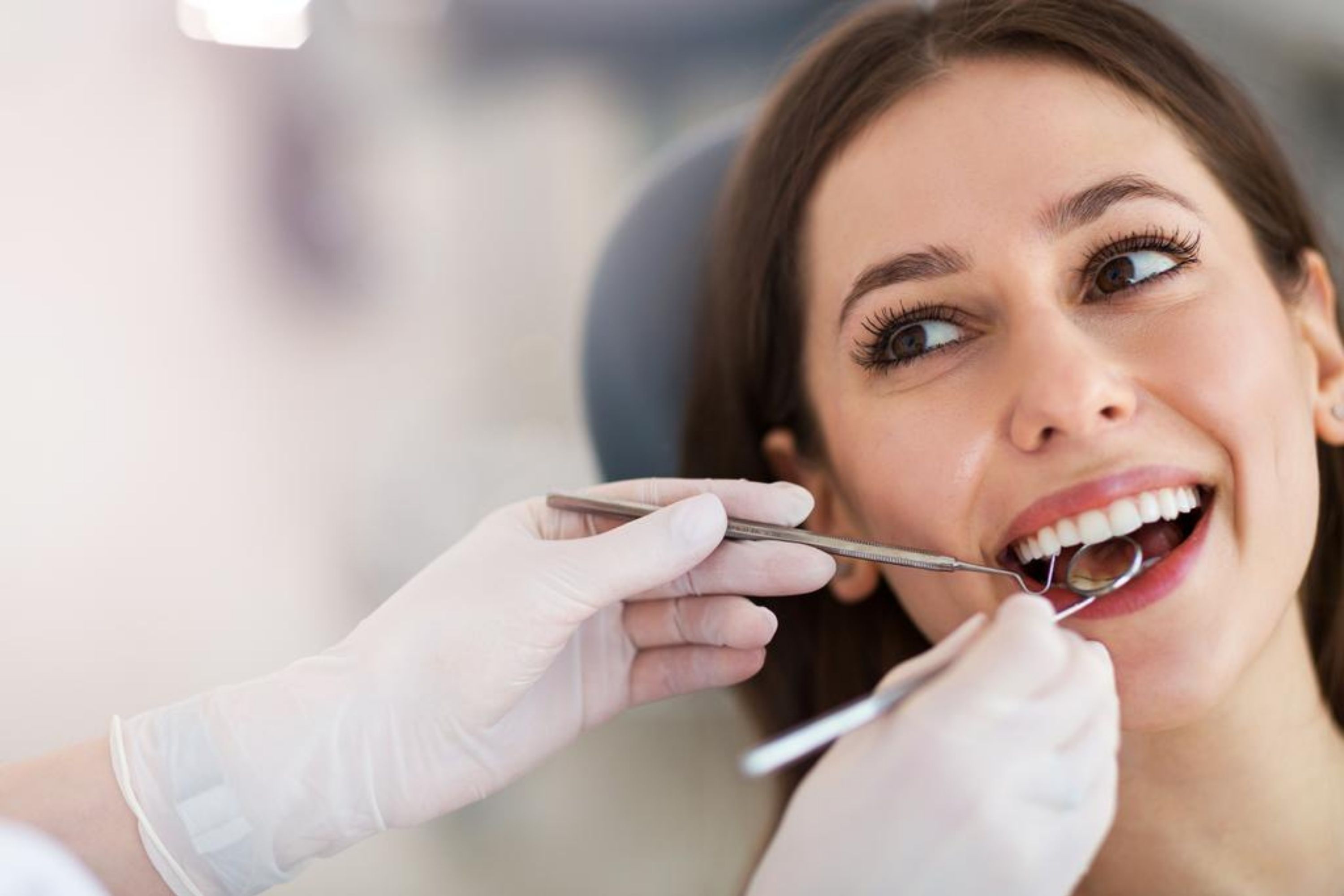
What can I do to reduce the time for dental cleaning? I need to undergo a prophylaxis cleaning which takes around 30 minutes, but I know it takes more time for all the paperwork, etc. How to skip that?
I’d say – fill all the paper ahead of time. Just arrive a bit earlier to have enough time for that stuff. Also, I guess you should have a list of all prescription, non-prescription and supplements you take, along with a list of any recent or ongoing illnesses or hospitalizations. Just in case!
If I need to have two teeth removed, do they need to be cleaned during the dental cleaning?
No, those teeth can be skipped. What’s the point in cleaning them if they’ll will anyway be extracted?